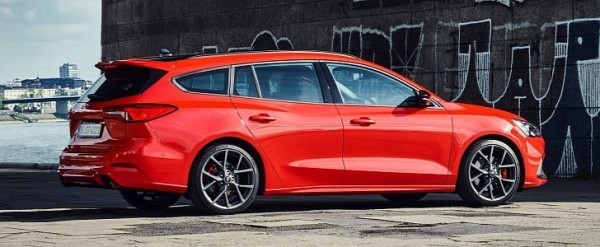
In terms of torque, the larger displacement and more aggressive turbocharging of the EcoBoost translates to 310 pound-feet (420 Nm) as opposed to 295 pound-feet (400 Nm) for the EcoBlue. The twist is, EcoBlue customers can experience peak torque at 2,000 rpm while the EcoBoost needs to be hooned to 5,500 rpm. Either option sends the goodies to the front wheels, but only the EcoBoost comes with an electronic limited-slip differential.
The EcoBlue makes do with torque vectoring, but nevertheless, the 2019 Focus handles great regardless of configuration. Similar to the hatchback, the wagon can be optioned with the Performance Pack. This adds the Track driving mode, the rev-matching upgrade for the transmission, shift indicator, and state-of-the-art dampers. Mirroring the exterior, the cabin brings the point home with go-faster parts such as the Recaro front seats and sports steering wheel with a flat bottom.
Ford makes a case the Focus ST comes with the automaker’s quickest electric-assisted steering system to date, and we’re not surprised given how the Focus ST-Line changes direction on the track and on the road. On a different note, the Renault Megane RS isn’t bad either. The problem with the compact-sized competition is that Ford created a niche within a niche with the Focus ST Wagon, something that not even the Honda Civic Type R is willing to challenge.








